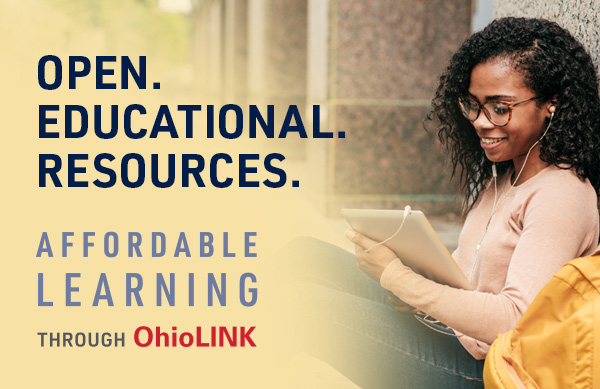
Amanda Barry traveled half a world away for a different view of mental illness.
The recent graduate of Ohio Wesleyan University used an OWU Theory-To-Practice grant to travel to Arusha, Tanzania in January to study memory impairment and attitudes toward those affected by dementia in rural Africa.
The idea came not only from her interest in pursuing a clinical career in dementia, but also from a previous trip to Tanzania as part of a biology class. After that trip, Barry turned to OhioLINK’s Electronic Journal Center to compare dementia cases and the stigma attached in the U.S. and in rural Tanzanian communities.
That information became the basis of the grant proposal she wrote, titled “Exploring the Prevalence and Perceptions of Dementia in a Rural Community in Tanzania.”
“As I was fine-tuning my procedure before my trip,” Barry said. “I used OhioLINK for additional research on the culture of the area and the tribes so I could be as well-educated as possible.”
Barry traveled with Professor Ali Skandor to Tanzania with two goals in mind: To approximate the prevalence of dementia among members of several Maasai communities, and to get a feel for the attitudes families had toward affected individuals.
Through her OhioLINK research, Barry found some research that suggested these tribes exhibited lower instances of memory impairment than the rest of the world.
“We were curious if it was their diet, their lifestyle, maybe they just don’t live as long and can’t develop it,” she said.
Diagnosing memory impairment is incredibly difficult under any circumstances because dementia often can’t be determined until after death. So as a proxy, Barry and Skandor administered mini-mental status exams to everyone in the tribes who were older than 40.
For those with low exam scores, Barry followed up by interviewing family members to gauge behavior and see if they exhibited any symptoms of dementia.
“There were a lot of learning curves,” Barry said. “The language barriers were quite difficult. For some we had to translate English to Swahili to Maasai.
“Mostly what we took away were suggestions for next time. In the field of psychology, we need to come up with mini-mental status exams in different languages and make them applicable to cultures that don’t consist only of western-educated people.”
While the examination process may have been rocky, Barry was able to get a sense of attitudes toward those with signs of dementia. She determined that there was generally less of a stigma attached when compared to attitudes back home.
“I’ve had experiences with older adults with dementia and so often the attitude (in Western culture) is frustration,” she said. “Over there, they never used words like ‘dementia’ or anything. They’d say, ‘amnesia’ or ‘it’s old age’ or ‘they had worked really hard.’ They allowed them to have as much freedom as they could, they were very patient, they may even make lighthearted jokes. But the attitude was more, ‘these things happen, I still love you and I’m going to take care of you the best I can.’ It was a very different attitude.”
Barry’s previous experience with studying mental illness, aside from research and classwork, came during an internship at a memory care unit.
“I loved the people and the different activities we could do together,” she said. “It was fulfilling and emotional. But you really felt like you could make a difference for people, especially people who are often forgotten. It solidified for me that this was the path I wanted to pursue.”
Barry plans to go to graduate school for clinical psychology and work with older adults with dementia. She also believes her trip to Africa will help not only her own career and future endeavors, but also others studying the subject.
OhioLINK’s role in Barry’s research was pivotal.
“I wouldn’t have had the financial ability to find all those resources without OhioLINK, and I wouldn’t have been able to locate them nearly as easily,” she said. “As a freshman, I had no idea it existed, really. It was something I knew about but I never really had to use. I was able to search Google for the two sources I needed for papers. But then as things got more intense and I got more involved in research, there was no way Google Scholar was going to cut it anymore.
“I spoke with my librarian and she introduced me to OhioLINK. And I’ve used it for everything. I wouldn’t have been able to do any of it without OhioLINK.”
Just as one librarian introduced her to OhioLINK, Barry – who worked in the Ohio Wesleyan University library for three years – introduced other students to it.
“I’d walk them through using OhioLINK and show them how it works,” she said. “Often students would have a report or paper due the next day. And they’d want a book and we wouldn’t have it. So, I’d point them to OhioLINK’s EJC and often they were able to find other sources they’d be able to use.”
###
Written by Ross Bishoff

